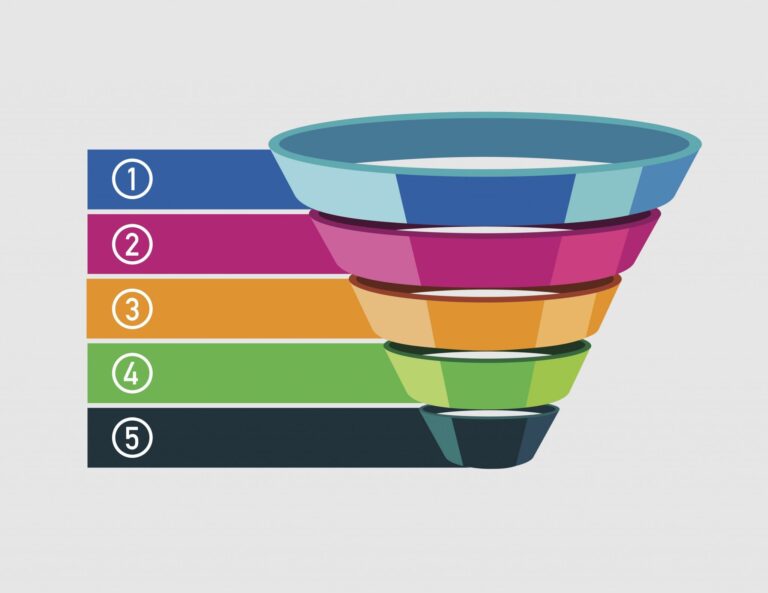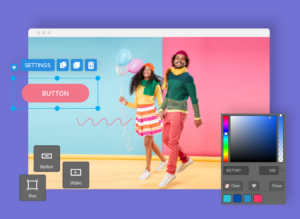Do you want to grow your business and increase your revenue? If so, you need a sales funnel software. A sales funnel is a marketing process that helps transform into regular, paying clients people who were previously unaware of your brand. If you consider a powerful way to increase sales and profits, you have a sales funnel as an option to explore.
But how do you choose the right sales funnel software? There are so many options out there, such that it can be hard to know where to start. And that’s where this article comes in. It walks you through the process of choosing sales funnel software and shows you what to look for to get the best results.
So, whether you’re a beginner or an experienced marketer, read on to learn how to choose the right sales funnel software for your business.
How to Choose Sales Funnel Software
- Know What a Sales Funnel Software Is.
- Master How a Sales Funnel Software Works.
- Understand the Pros and Cons of Sales Funnel Software.
- Identify Your Specific Sales Funnel Needs.
- Assess the Software’s Features and Functionality.
- Consider Integration with Existing Tools.
- Evaluate User-Friendliness and Ease of Implementation.
- Check for Customization and Scalability Options.
- Review Pricing and Cost Structure.
- Verify Customer Support and Training Resources.
>>> MORE: Zoho CRM Lead Management Review
1. Know What a Sales Funnel Software Is
To choose the best sales funnel software, know what a sales funnel is. A sales funnel software is a digital tool that helps your business to automate your sales funnel and track your progress. You can use it to create landing pages, email campaigns, and webinars, and to track the performance of each touchpoint in the funnel. With the information a sales funnel software provides, you can easily identify what’s working and what’s not, so that your venture continually improves its funnel and generates more sales.
2. Master How a Sales Funnel Software Works
To select the best sales funnel software, know how it works. See the sales funnel software as a tool that streamlines your sales process by organizing customer data, managing leads, tracking opportunities, automating tasks, and providing insights. The software offers you—or your sales team—the capability to be more efficient and effective in your efforts to convert prospects into loyal customers.
Another way to understand how a sales funnel software works is to consider it as a tool that centralizes customer and prospect data, provides tools to manage leads, opportunities, and customer interactions throughout the sales lifecycle.
3. Understand the Pros and Cons of Sales Funnel Software
To find the best sales funnel software, familiarize yourself with its pros and cons.
Pros
- Streamlines sales process.
- Centralizes customer data.
- Improves lead management.
- Enhances communication tracking.
- Provides sales analytics and insights.
- Automates routine tasks.
- Increases team collaboration.
- Integrates with other tools.
- Offers mobile accessibility.
Cons
- Is a costly business investment.
- Requires learning curve for implementation.
- Raises data security concerns.
- Shows extensive dependency on software providers.
- Offers customization limitations.
4. Identify Your Specific Sales Funnel Needs
To get the ideal sales funnel software, identify your specific needs for a sales funnel. If you struggle to generate a steady stream of leads or find that your lead sources are sporadic, that’s a pointer that you need to adopt a sales funnel software into your operations. Also, low conversion rates and long sales cycles are indicators that you require a sales funnel software.
Other factors to look out for before deciding to get a sales funnel software are difficulty in tracking leads; poor customer retention and insights; desire for scalability and growth; sales and marketing misalignment; and inefficient follow-up process.
>>> PRO TIPS: Square Inventory Management Software Review
5. Assess the Software's Features and Functionality
To choose the perfect sales funnel software for your enterprise, assess the software’s features and functionality. By thoroughly evaluating the capabilities of the software, you can ensure it aligns with your specific needs and supports your sales process effectively. Look out for the following functionalities:
- Landing page builder. A good sales funnel software should have a landing page builder that allows you to create high-converting landing pages. These pages should be optimized for lead generation and conversion.
- Email marketing. Consider a sales funnel software with an email marketing platform that allows you to send targeted email campaigns. The best practice is to reach the right people with the right message at the right time with your campaigns.
- Webinar hosting. What is a sales funnel software without an online seminar hosting feature? Remember that webinars are a wonderful way to educate potential customers and generate leads.
- A/B testing. The perfect sales funnel software allows you to A/B test your landing pages and email campaigns. This helps you to identify what’s working and what’s not, so you can continually improve your funnel and generate more sales.
- Analytics. When it comes to analytics, it is an important feature you don’t want to ignore. Analytics serve you with information that help you to track the performance of your funnel and identify areas where you can improve.
6. Consider Integration with Existing Tools
To select the proper sales funnel software, consider integration with existing tools. When choosing a sales funnel software, one crucial aspect to consider is how well it integrates with your existing tools and systems. Integration refers to the seamless connection and interaction between the sales funnel software and other software or platforms you are already using in your business operations. Thanks to the integration feature, you can adjust your sales process, optimize efficiency, and enhance overall productivity.
For example, integration allows for the smooth transfer of data between your sales funnel software and other business tools, such as customer relationship management (CRM) systems, email marketing platforms, project management tools, and more. This ensures that all your systems are up-to-date and share the most current and accurate information.
7. Evaluate User-Friendliness and Ease of Implementation
To incorporate the right sales funnel software into your business’s day-to-day operations, evaluate its user-friendliness and ease of implementation. Consider software that has a clean, organized, and visually appealing interface. A cluttered or confusing interface can lead to user frustration and reduce productivity.
Also, think about navigation. Adopt the software with clear navigation paths to various features and functions. You want to find whatever you’re looking for without many complexities. Then check if the software simplifies onboarding new team members.
8. Check for Customization and Scalability Options
To secure a sales funnel software that enhances productivity, check for customization and scalability options. When you think of customization, you want software that offers workflow customization; landing page and funnel design templates; and email templates. On the other hand, scalability talks about how well the software can accommodate your business’s growth. In that instance, you focus your attention on user capacity; lead and traffic handling; functionality expansion; and API and Development Support.
9. Review Pricing and Cost Structure
To choose a sales funnel software, consider the price and cost structure. Most sales funnel software providers offer you different pricing tiers with varying levels of features and capabilities. It’s essential you carefully examine what each tier includes and whether it meets your specific requirements. You also need to understand the sales funnel software subscription model. Sales funnel software is typically offered on a subscription basis, billed monthly or annually.
Consider the subscription duration and whether there are any discounts for committing to an annual plan. Some providers may also offer a pay-as-you-go option, which can be useful if you have seasonal or fluctuating sales needs.
>>> GET SMARTER: Square Inventory Management Software Review
10. Verify Customer Support and Training Resources
To select the best sales funnel software, verify its customer support and training resources. Think about it: The level of support and available training can significantly impact your experience with the software and your team’s ability to use it effectively. Choose the sales funnel software that promises prompt and responsive customer support. Check if it provides multiple channels for support, such as email, live chat, or phone, and inquire about its average response times.
Also, ensure that customer support is available during your business hours or at times when you’re most likely to need assistance. Some providers may offer 24/7 support, which can be valuable if your business has a global presence or operates flexible working hours.
Recap
Choosing the right sales funnel software goes a long way in determining the success of your business as it grows. Know what a sales funnel software is and how it works to start. Understand the pros and cons of sales funnel software and identify your specific sales funnel needs.
Going forward, assess the software’s features and functionality, consider integration with existing tools, and evaluate user-friendliness and ease of implementation. Then, check for customization and scalability options as you review pricing and cost structure. Lastly, verify the software’s customer support and training resources.













